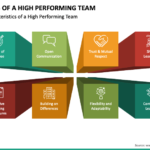“There’s no such thing as a self-made millionaire. Only TEAM-made millionaires”
In last week’s Wednesday Wisdom we discussed the different leadership positions and the fact that in the herd leadership is shared. A horse herd operates as a team and to my mind teamwork is the most effective way in business to create success. Being in business is tough and there is simply no way that you can do everything by yourself. Each of us has own our brilliance and working with team members enables you to focus on your brilliance whilst letting others do theirs. The net effect is that everyone is in a state called flow, which is the state of least resistance. Then business becomes easy and fun.
But how do you get the best out of team members and inspire them to give of their best to help your business grow and be successful.? The answer is to ask better questions. So are you a teller or a questioner?
In other words, when you’re working with your team members (or outsourcers) do you tend to tell them what to do or do you engage them in a conversation by asking questions?
If you’re like most entrepreneurial leaders, chances are you’re the former. If that’s true, then my question to you is “How’s that working for you?”
My guess is it’s not working out as great as you’d like it to. In fact, I find that most entrepreneurial leaders are pretty frustrated with the people they’re “leading.” See if any of the following statements ring true for you
- “They never do what I tell them to do!”
- “It always takes her ten times longer to do what I asked her to do. If she’d just listen to me, she could get it done in one tenth of the time it’s currently taking!”
- “I can’t understand why it’s taking him so long to do what I asked him to do.”
- “I can’t figure out why she just can’t follow my directions.”
- “I didn’t hire him to think. I hired him to do what I tell him to do.”
Ouch! And I fully understand those sentiments. As an entrepreneurial leader myself I understand why you want people to do what you want them to do in the way you want them to do it (after all, you are the BOSS, right? And it is YOUR company. And you do pay THE BILLS. And they do work for YOU, right?).
Furthermore, I get the whole driven part of the entrepreneurial personality. According to my Talent Dynamics profile I have lots of dynamo energy so, by personality, I like being a teller. I like saying, as chances are you do, “Here’s what I want you to do. Now, just go do it. No questions. No debate. Just get it done EXACTLY how I told you to do it.”
But, as you well know, that approach doesn’t produce the best results
The Problem With Being a Teller
What I learned, and hopefully you are as well, is that being a teller is a counterproductive leadership approach. Why? For a number of reasons. I’ll give you three.
- Telling doesn’t create buy in. As you know, people own what they help create, which, by definition means they don’t own what they don’t help create. So, if you or I say, “Billy, I want you to do X in Y way,” how much does he own that? Virtually nil. And if someone doesn’t own a task or project or process/procedure or event or strategy or tactic, the chances of them producing the best result will always be lower than if Billy is involved in creating the solution. Telling doesn’t work because it doesn’t create buy in or ownership.
Note: We’re not talking about following systems here. We’re talking about solving problems or creating something new. - Telling doesn’t produce the kind of people you want/need. In other words, if you’re a teller, you’re NOT developing your people to be their best (whether that’s to be a better leader or problem solver or innovator or coach or process person, etc.). Or to put it another way, if you or I are always in the telling position, then we’re not creating independent thinkers. And if we’re not creating independent thinkers, then we’ll have to keep doing all the thinking—which leads to the third reason why you don’t want to be a teller.
- Telling doesn’t create leverage. If you or I still have to do all the thinking, then we’re not creating leverage. We’re simply creating more work for ourselves. We become the bottleneck to growth. If our people don’t own the task, then we have to invest more time in managing and leading the task. If our people aren’t really excited about a task or project, then more conflict will occur, which means we’ll have to invest more time. Or, if the only people we’re happy with are people who will just do what they’re told, then we’ll always put a lid on the quality of the kind of employee we can hire (which, again, kills leverage).
Any way you add it up, being a teller, just isn’t the smartest leadership choice you or I can make if we want to grow a fast growing business or organisation.
The Better Option
The better option, if you want to get the best from your team is to learn to connect, engage and communicate with them. Even if this isn’t your natural bent, you can learn to do this.
Next week I’ll be sharing my best tips on how to connect through using questions.

Julia Felton (aka The Business Wrangler) is the founder of Business HorsePower. Business leaders, entrepreneurs and executives hire her to accelerate their business performance by harnessing the energy of their people to work more collaboratively together. By aligning purpose with actions the team achieves exponential results as everyone starts pulling in the same direction.
Julia believes that business is a force for good and through designing purpose-driven businesses that leverage the laws of nature, and the herd, you can create businesses founded on the principles of connection, collaboration and community that make a significant impact in the world.






